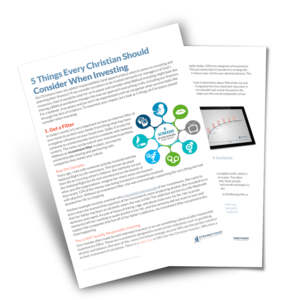“Reading, writing, math”…too bad that list doesn’t include personal finance. Most kids will learn the very basics of money and the value of it in school but probably won’t learn to manage money unless they choose finance as a career path. That means it is up to all of us to see that our children reach adulthood prepared to face life’s money challenges. I believe that personal finance should be one of the basics of life that all kids need to have a decent grasp on before they head off to college or leave home on their own. This is a life skill that if learned and practiced, will keep your kids from much heartache as they go through life. Why not teach our kids to learn from our own mistakes rather than let them make the same mistakes on their own!
Kids and Finances

Earlier is Better

The benefits of teaching your children about money early on are both immediate and long term. In the short term, they may develop strong saving habits, learn how to make smart purchases, begin to understand the true meaning of “investment,” and perhaps even learn why they can’t immediately get everything they want. In the long term, you can help them avoid accumulating debt. And by teaching the value of saving for the future, you can help them plan for financial security.
Probably the most ideal time to begin teaching your children about the basics of money is when they first begin to notice it. In a child’s world, money comes from Mom and Dad’s pockets. And when Mom and Dad don’t have it in their pocket, a machine magically spouts dollars after merely pushing a few buttons. It’s natural for them to assume that money is readily available whenever it’s needed.
When they can’t understand why you can’t meet their every demand and you’re about to use a standby response such as, “Money doesn’t grow on trees”, remember that a more constructive explanation may serve both of you better.
Even very young children can begin to understand the concept of earning money. Explain to your children that money is earned by working and that you can only spend what you earn. To help them understand what it’s like to get paid on a schedule, an allowance might be a good idea. Then help them set goals for how they spend and save their allowance. It’s important, however, to make sure you stick to the payment schedule and not give in when they really want something they don’t have the money for, otherwise the lesson is lost.
To Give Allowance…..or Not?

This is a debate that I’ve heard both sides of. Many people differ on whether or not allowances should be tied to household chores. Although many people say children will learn more about personal responsibility if they are NOT paid for pitching in around the home, others feel it teaches them valuable lessons about working and earning. You might consider paying your children for chores outside of daily duties, such as helping to garden or washing the family car. The bottom line is that it’s going to be harder to teach your child about money if they don’t have any of their own to manage. So, how you decide to give it to them can vary. Just make sure you don’t offer them an endless supply.
To Teach the Tithe

Tithing is one of the hardest things for even mature Christians to learn to do. This is why I believe that ingraining in young children from the very beginning about the importance of giving should be a priority of all parents. Personally, how I’m helping my children learn about money and specifically the tithe is that they have a container that has three separate compartments. One is labeled “spending”, one “tithe” and one “savings”. First thing they do when they get their allowance is divide it up. They put 10% in the tithe, 10% in the savings and the remaining part in spending. They are now pretty automatic about knowing that they need to give back to God first. Then, there have been times when there have been special offerings at church or projects that we’ve done as a family where they feel led to pull from their savings or spending to give from. This is not something I push them to do though.
Lessons on Saving and investing

Once your children have been saving enough to accumulate a small amount, you can take them to the bank to open their first savings account. Some community banks will allow children to open their first account with a low minimum deposit. Some even have accounts especially marketed to kids to make the learning process fun. Make sure your children have a chance to see their statements so they can see the interest and growth.
As your children get older, and perhaps take on part-time jobs to earn more money, their savings will have the opportunity to grow quicker. Now is a good time to give them a good lesson on compounding, or the ability of earnings to build upon themselves. Explain how compounding can be more dramatic over time; the longer money is left alone, the greater the effect. This can lead into a discussion about investing and how certain investments can have a greater ability to compound over time. If they can learn the value of saving and investing as a teenager they will be light years ahead of most. Compounding can do amazing things while they have time on their side. For example, if they were to start putting $100 dollars away every month starting at age 15 and earned an average of 8%-9%, they would have about a half a MILLION by age 60!
I have several clients now that have opened investment accounts for their children and grandchildren, and it has been a wonderful learning experience for them. They add money as they want to out of allowances and part-time jobs. They keep up with their statements and they can witness the impact of the markets on the accounts over the years. Now they know how important it is to diversify and not to have short-term money invested aggressively!
I would also suggest that once they are earning enough money regularly from a job, to also open them a checking account. Every kid should know how to maintain a checking account, keep track of your purchase and reconcile an account monthly before they head out on their own!
Last, once they are working, they can open a Roth IRA to begin contributing, at any age. I’ve opened a few retirement accounts for minors and it’s exciting to show them how much their small deposits can add up over a long period of time.

Teaching your children about our complex financial system may seem daunting, but you can help put your child on the right track by encouraging smart habits now.
Is it worth your time and effort to help your children learn about money? As Benjamin Franklin once said, “An investment in knowledge always pays the best interest.” Answering your children’s questions honestly and in terms they’ll understand can help them begin life on sound financial footing.
Bring your kids to a meeting with you!
5 Things Every CHRISTIAN Should Consider When Investing
